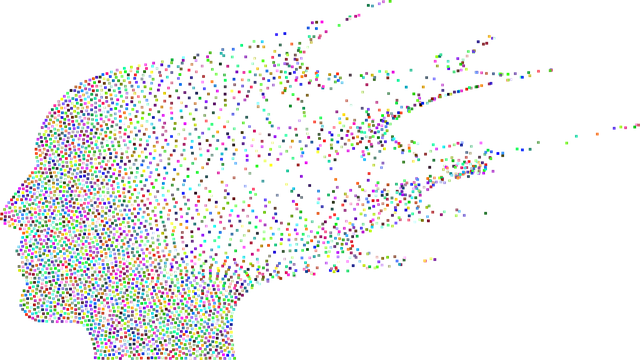Mental wellness coaching provides a transformative approach to overcoming challenges like Oppositional Defiance Disorder (ODD) in Englewood. Through personalized sessions, coaches create safe spaces for clients to explore thoughts and emotions, address underlying issues, and develop coping strategies. This method incorporates empathy-building and self-care practices to enhance emotional intelligence, crucial for ODD sufferers to regulate impulsive behaviors and improve relationships. Tailored coaching programs offer practical tools and insights for maintaining mental health and leading fulfilling lives. Englewood Oppositional Defiance Disorder Therapy focuses on empowering children and their caregivers through empathy, compassion cultivation, and coping skills development, aiming to improve emotional regulation, reduce impulsivity, and enhance academic performance. Effective ODD therapy combines cognitive-behavioral therapy, mindfulness training, and positive reinforcement, with a structured yet flexible approach that prioritizes burnout prevention for healthcare providers, ensuring long-term positive outcomes.
Mental wellness coaching programs are gaining prominence as transformative tools, especially in addressing specific challenges like Oppositional Defiance Disorder (ODD). This article delves into the development and impact of such coaching, focusing on Englewood ODD therapy. We explore key aspects, from understanding coaching’s potential to identifying target groups, designing effective strategies, and ensuring continuous improvement. By implementing these insights, communities can foster healthier, more resilient individuals.
- Understanding Mental Wellness Coaching and Its Impact
- Identifying Target Groups: Children with Oppositional Defiance Disorder (ODD)
- Designing Effective Programs: Strategies and Techniques for ODD Therapy
- Implementation and Continuous Improvement of Coaching Interventions
Understanding Mental Wellness Coaching and Its Impact

Mental wellness coaching is a transformative process that empowers individuals to navigate and overcome challenges related to their mental health. It involves guiding clients towards self-discovery, fostering resilience, and developing coping strategies to enhance overall well-being. Through personalized sessions, coaches create a safe space for clients to explore their thoughts and emotions, address underlying issues, and cultivate positive changes. This supportive approach has proven effective in treating various conditions, including Oppositional Defiance Disorder (ODD) in Englewood, offering alternative therapy options that complement traditional treatments.
By incorporating empathy-building strategies and self-care practices, mental wellness coaching fosters emotional intelligence—the ability to recognize and manage one’s emotions and understand the emotions of others. This skill set is invaluable for individuals dealing with ODD, as it helps them regulate impulsive behaviors and improve interpersonal relationships. Coaching programs can be tailored to meet specific needs, ensuring that clients gain practical tools and insights to maintain their mental health and lead fulfilling lives.
Identifying Target Groups: Children with Oppositional Defiance Disorder (ODD)

Children with Oppositional Defiance Disorder (ODD) represent a distinct target group within mental wellness coaching programs. ODD is characterized by persistent and repeated inappropriate behavior, including arguments with authority figures, active defiance, and irritability. These children often struggle with emotional regulation, impulsivity, and difficulty following rules, which can significantly impact their academic performance and social interactions. Thus, tailored interventions are crucial for their growth and development.
Englewood Oppositional Defiance Disorder Therapy focuses on empowering both the child and their caregivers through Empathy Building Strategies, Compassion Cultivation Practices, and Coping Skills Development. These approaches aim to foster a deeper understanding between the individual with ODD and those around them, promoting empathy and reducing conflict. By teaching coping mechanisms and enhancing emotional intelligence, these strategies help children navigate challenging situations more effectively, ultimately leading to improved mental wellness.
Designing Effective Programs: Strategies and Techniques for ODD Therapy

Designing effective programs for Oppositional Defiance Disorder (ODD) therapy requires a multifaceted approach that combines evidence-based strategies with cultural sensitivity in mental healthcare practice. By integrating techniques from cognitive-behavioral therapy, mindfulness training, and positive reinforcement, coaches can create tailored interventions to address the unique needs of each individual. For instance, teaching coping skills and emotional regulation strategies can empower clients to manage their impulses and improve their interactions with others.
Moreover, burnout prevention strategies for healthcare providers are essential components of successful ODD therapy programs. Coaches must prioritize self-care practices, foster a supportive therapeutic environment, and regularly assess the progress and well-being of both clients and themselves. This holistic approach ensures that the mental wellness coaching program remains sustainable and effective in the long term, ultimately enhancing the outcomes for individuals struggling with ODD.
Implementation and Continuous Improvement of Coaching Interventions

Implementing coaching interventions for mental wellness requires a structured approach that combines evidence-based practices with adaptability. For conditions like Oppositional Defiance Disorder (ODD), a tailored coaching program can significantly enhance traditional therapy. Coaches play a pivotal role in guiding individuals towards self-discovery and personal growth, fostering resilience building and confidence boosting skills essential for managing mental health challenges.
Regular evaluation and continuous improvement are cornerstones of effective coaching. By assessing progress, identifying areas of success, and pinpointing challenges, coaches can refine their strategies. This iterative process ensures that interventions remain relevant and impactful, addressing evolving needs in a dynamic field like mental wellness coaching.
Mental wellness coaching programs, particularly those tailored for children with Oppositional Defiance Disorder (ODD), like Englewood ODD therapy, hold immense potential in fostering positive change. By combining effective strategies and techniques discussed throughout this article, coaches can significantly impact participants’ lives. Continuous improvement through implementation and adaptation ensures that these programs remain relevant and impactful. As we navigate the digital age, embracing innovative approaches to mental wellness coaching will only enhance its effectiveness, ultimately revolutionizing support for individuals facing ODD and similar challenges.














